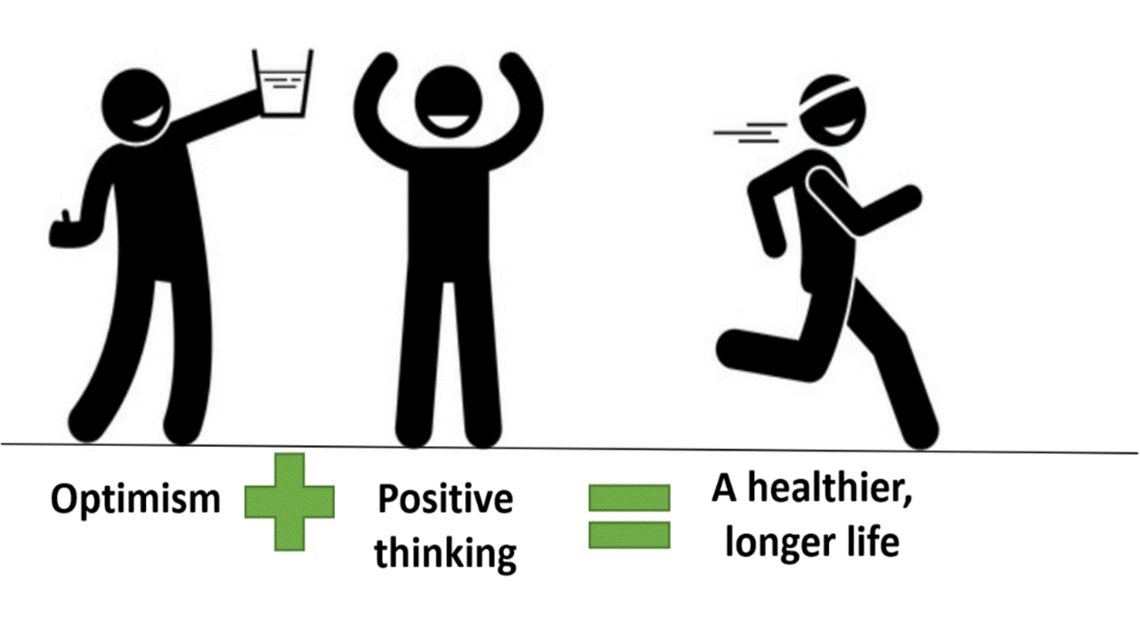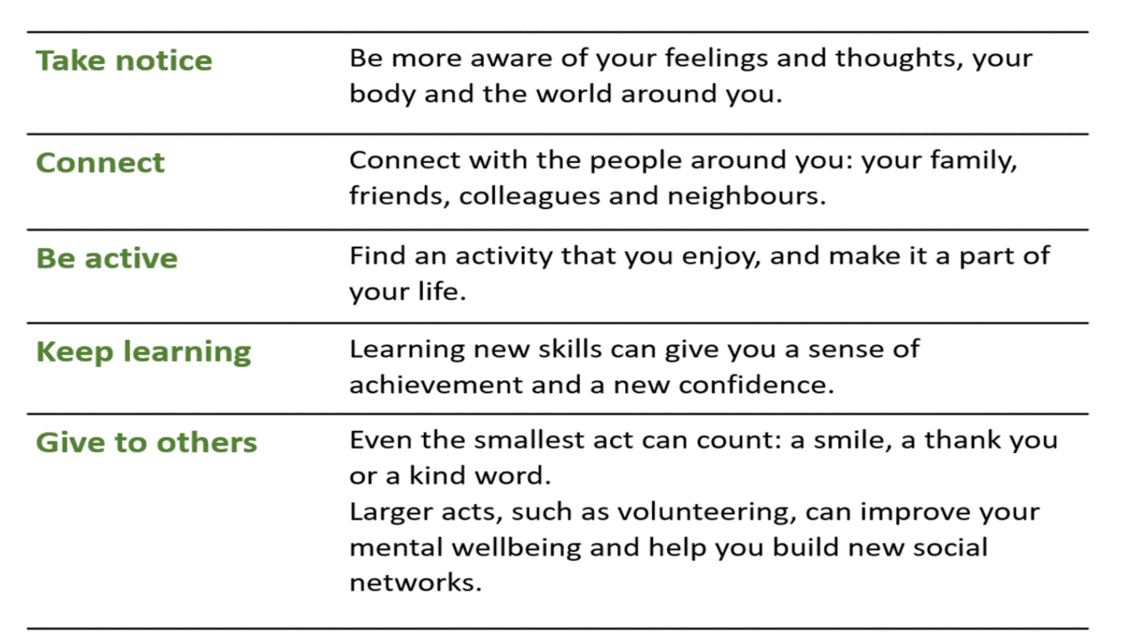Can our minds affect our physical wellbeing? If so, how can we take advantage of this to improve our mental and physical health?
- Some general indications
- The Placebo Effect – myth or reality?
- What else does research suggest?
- Cancer patients and positive thinking
- Psychological therapies
- Meditation and mindfulness: how to improve your mental wellbeing

We know that depression increases the risk of dying, including the risk of stroke, a leading cause of death and permanent disability.
Conversely, patient expectations can influence clinical outcomes (the effectiveness of their treatment). That is what a number of studies have concluded, including a two-year study of 88 breast cancer patients, reported in 2016, which found that the relative risk of side effects was higher in patients with negative expectations than those with more positive expectations.
The Placebo Effect – myth or reality?
We’ve probably all heard of the placebo effect – the idea that if we expect a treatment to work, it will, and that it may be our belief rather than the treatment itself which is having the effect. In fact the placebo effect is sometimes used to explain why complementary medicine may work for some people.
|
The existence of the placebo effect has been widely recognised, even within the NHS. |
The placebo effect also explains the way in which many cough medicines work. For instance, one review reported that up to 85% of the efficacy of cough medicines is due to a placebo effect.
In recent years, though, there has been debate as to how real the placebo effect is. A major challenge came in 2010 with the publication of a systematic review of the research. This found little evidence of the placebo effect in practice, other than possible self-reported effects in reducing pain and nausea.
However a more recent re-evaluation of the evidence (in 2013) concluded that placebos do have an effect and stated, ‘Placebos with comparatively powerful effects can benefit patients, either alone or as part of a therapeutic regime’.
Interestingly, several small studies published in 2016 suggest that placebos can work even when people know they are placebos. For example a study of 97 patients with lower back pain reported that patients who knowingly took placebos reported 30% less pain and 29% less disability than a control group who didn’t taking placebos.
|
Placebos are more than just negative controls in clinical trials; they can be a treatment in their own right. |
For those with a physical illness, the placebo effect may be effective when combined with psychological intervention. A 2018 study compared psychological interventions such as cognitive behavioural therapy (CBT) to a placebo control treatment. It found that the placebo response rate for irritable bowel syndrome (IBS) was determined by patient-related factors, such as wanting and hoping for treatments to be effective, rather than determined by the content of the intervention.
Recent research has suggested that the placebo effect might influence dopamine, opioid, serotonin and endocannabinoid systems, all of which are associated with pain reduction, ‘pain syndromes’ or pain sensation. More research is needed to help explain how the placebo effect influences these complex physiological systems.
What else does research suggest?
Research suggests that the personality trait of optimism (which is associated with positive thinking) may protect against chronic diseases, and may help people live up to 15% longer. These results were independent of socioeconomic status, health conditions, depression, social integration, and health behaviours such as smoking, diet, and alcohol use.
The Mayo Clinic suggests a correlation between eliminating negative self-thoughts and stress. Whether your attitude is ‘glass half full’ or ‘glass half empty’, the perception of your life can affect your health.

Cancer patients and positive thinking
The effects of positive wellbeing, however, may not be true in cancer patients. According to a 2010 study there was no positive correlation between positive thinking and an increased immune function.
That may not be the full picture though. If positive thinking encourages people to exercise more (as with the heart patients mentioned earlier) then positive thinking may have health benefits even for cancer patients. A 2011 report identified that exercise for cancer patients increased patients’ overall health and decreased overall BMI and body weight. Such exercise also improved the patients’ quality of life as measured by mental health and physical and social functioning.
Psychological therapies
Cognitive Behavioural Therapy (CBT)
CBT is a type of psychotherapy in which people learn to identify and deal with negative thoughts and negative patterns of behaviour.
|
An important aspect of CBT is positive thinking. This does not mean ignoring life’s problems. It does mean rethinking how you respond to them. |
The Royal College of Psychiatrists gives an example. You've had a bad day, feel fed up, so you go out shopping. As you walk down the road, someone you know walks by and, apparently, ignores you. This starts a cascade of negative thoughts, emotions and feelings. CBT might suggest rethinking the situation, for instance like this: He/she looks a bit wrapped up in themselves – I wonder if there's something wrong. The focus shifts to concern for the other person, a more positive response which doesn’t trigger such negative feelings and emotions.
Acceptance and Commitment Therapy ACT)
A 2020 systematic review of cancer survivors who went through positive psychology therapies, found that these patients had fewer depressive and anxiety complaints, improved mindfulness and a better quality of life. The most effective approach was the Acceptance and Commitment Therapy (ACT), which can be more effective than CBT.
Emotion Regulation Training (ERT)
Quality of life is also found to improve when those diagnosed with cancer take a positive thinking approach through ERT. A small 2017 study on child cancer patients, found that ERT, a positive thinking approach, was effective in encouraging the functioning four major dimensions of quality of life: physical, emotional, social and schooling.
Positive Psychology
|
The core philosophy of Positive Psychology is a ‘build what’s strong’ approach to augment the ‘fix what’s wrong’ approach of traditional psychotherapy. |
Positive thinking usually starts with ‘self–talk’. If you believe and act on positive thoughts then a cycle of pessimism can be avoided. This can also reduce the chances of spiralling into mental health problems. A strategy for achieving this is described on the NHS Inform website.
|
There are few risks involved when someone discovers his or her strengths or focuses on the positive side of life — and there may be valuable benefits. |
What internal psychological factors are associated with positive thinking?
A 2020 study consisting of three questionnaires, given to 350 university students aged 18 to 36, showed that the students had a moderate psychological wellbeing level. There was a positive relationship between psychological wellbeing, self-efficacy and positive thinking, as well as a positive relationship between self-efficacy and positive thinking.
Meditation and mindfulness: how to improve your mental wellbeing
Meditation can help us relax and feel less anxious, less stressed, less worried, and make it easier to think positively. One popular form of meditation is mindfulness. Mindfulness encourages us to appreciate the present moment rather than just going through the day on auto-pilot.
There are some questions about whether the positive results from mindfulness seen in published studies would be as significant in real life. However, the effects seem generally positive. For example a study of 143 adults over twenty days, published in 2016, reported that mindfulness could help people manage daily stress.
An introduction to mindfulness (NHS Choices) suggests that there are five things we can do to improve our mental wellbeing. Together, these actions are a useful conclusion for positive thinking more generally – for ourselves and for those we care about:
There are many other practical exercises we can do in our daily lives to increase positive thinking, such as: self-care vision board, gratitude by mental awareness and more, as described in 19 positive psychology exercises by Positivepsychology.com.
Reviewed and updated by Norin Begum, November 2020. Next review date October 2024.
__________________________
Other relevant articles on the Age Watch website:
- Mind: A body–mind approach
- Mind: Cognitive Behavioural Therapy
- Mind: It’s all in the mind - Achieving a healthy lifestyle
- Mind: Meditation
- Fitness: Yoga
- Fitness: Tai Chi
- Fitness: Can exercise help you survive cancer?
- Illnesses: Cancer Prevention Guidelines

